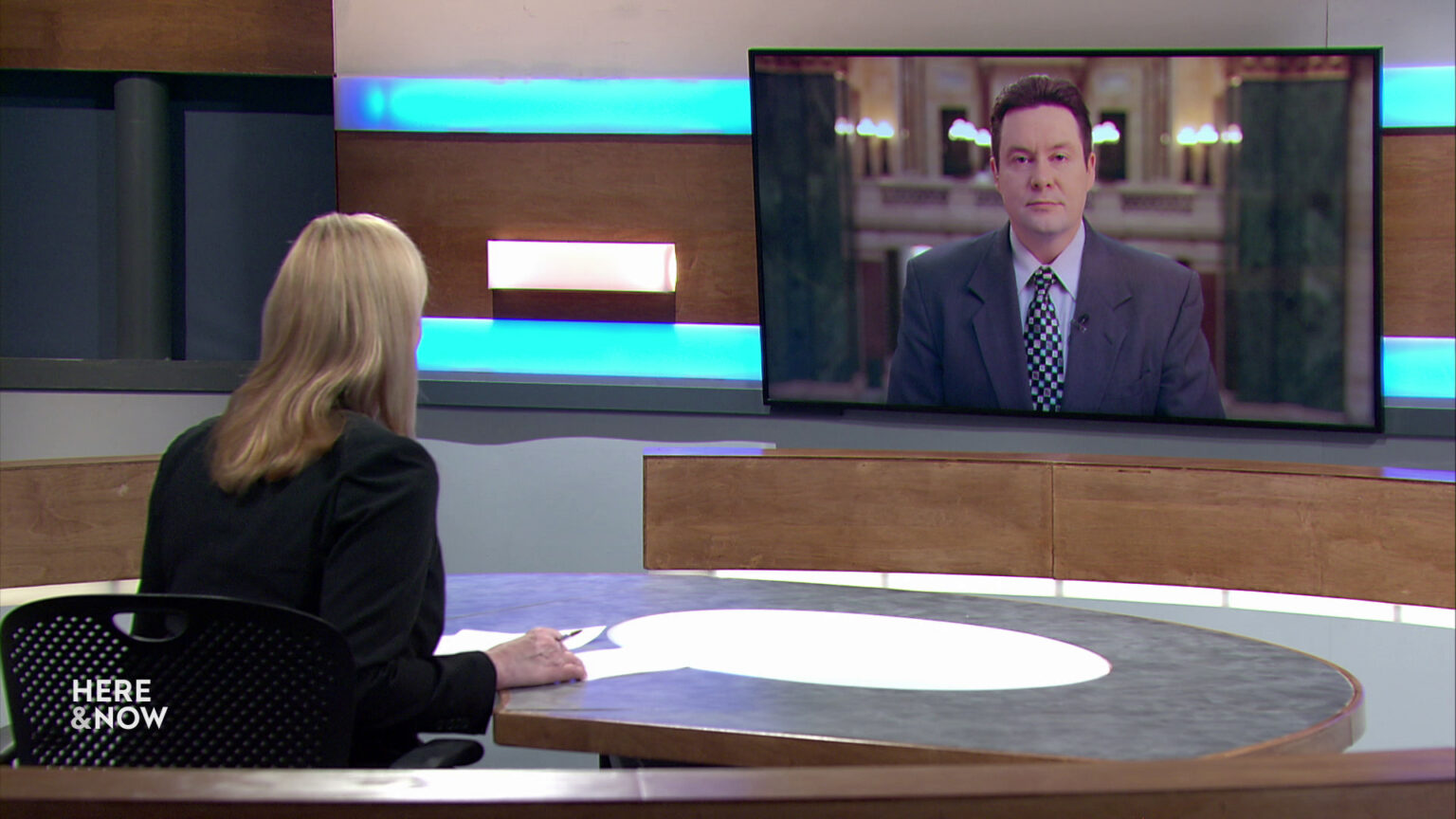'Here & Now' Highlights: Zac Schultz, Erin Barbato, Alyssa Ratledge
Here's what guests on the Feb. 2, 2024 episode said about the Wisconsin Supreme Court consultant review of proposed voting maps, what's happening at the southern border as record numbers of people seek asylum, and gaps in rural access to higher education.
By Frederica Freyberg | Here & Now
February 5, 2024

Frederica Freyberg and Zac Schultz (Credit: PBS Wisconsin)
The much-anticipated report from expert redistricting consultants working for the Wisconsin Supreme Court called for rejecting Republican-drawn legislative district maps — reporter Zac Schultz broke down the review’s findings and next steps in the process. University of Wisconsin Law School clinical instructor and immigration attorney Erin Barbato described what she witnessed at the U.S.-Mexico border on a recent fact-finding trip. Higher education researcher Alyssa Ratledge discussed the importance of access to college for students in rural communities.
Zac Schultz
Senior political reporter, Here & Now
- Consultants hired by the Wisconsin Supreme Court delivered their report on the legislative district maps submitted for review and found the ones from Republican lawmakers and a conservative law firm were partisan gerrymanders. Four other submissions from Democrats and affiliated groups are now in the hands of the court. Republican mapmakers said their maps were rejected because they didn’t produce outcomes that they say the court’s liberal majority wants. Schultz described that reaction on their part.
- Schultz: “I think they’re speaking to their audience — their voters, their base, their donors — and possibly hoping to speak to the U.S. Supreme Court where they’re hoping this appeal will be heard. And then one of their two preferred maps would ultimately be chosen by the high court in the land. But the honest reality is that every independent analyst, every expert, most people that understand this issue at all have looked at these maps for the last decade plus and said these are gerrymanders that favor Republicans. By how much has always been the question — was the two-thirds supermajority in the senate entirely a gerrymander? Probably not. What the experts say is that a good portion of that is because of the gerrymander. It was drawn in to favor Republicans in districts that were guaranteed to elect them.”
Erin Barbato
Director, University of Wisconsin Law School Immigrant Justice Clinic
- The crush of people crossing into the United States at the southern border with Mexico is described as a humanitarian crisis, with approximately 2.5 million people entering the country in 2023. Barbato and her team work to help asylum seekers complete steps needed to remain in the U.S. if they are qualified. She recently returned from Tijuana and described the situation.
- Barbato: “We visited a number of shelters that were housing people who are in transit attempting to seek refuge in the U.S. In order to do so, right now, they need to apply for an appointment with a CBP One app. Many of the people we met with have been waiting for months in order to access that appointment. But our government is encouraging people to go through a regular route to enter the U.S. to seek protection. But it is causing a lot of people to wait very long in Mexico before they can even access our asylum system.”
Alyssa Ratledge
Research associate, MDRC
- In just over a year, the Universities of Wisconsin has made the decision to close one two-year campus and take three others to online instruction. Ratledge’s area of research is higher education in rural areas and said gaining access to college is important for job and career attainment in an increasingly technology-oriented economy.
- Ratledge: “There are many rural students for whom online access is going to be enough, right? When we think about our students who are coming out of high school, have good access, have good knowledge of the internet, yes, that can be a good option for that. However, there are going to be a lot of folks that are not going to be able to take that up. Oftentimes, that’s older folks or people who are living in very remote and rural fringe locations where they simply don’t have reliable broadband or in some places don’t have internet access at all. There are still parts of the country without reliable internet access, and many of the online course offerings are going to require a high-speed connection or the ability to download documents that just is out of reach for people who are living really off the grid.”
Watch new episodes of Here & Now at 7:30 p.m. on Fridays.
 Passport
Passport











Follow Us